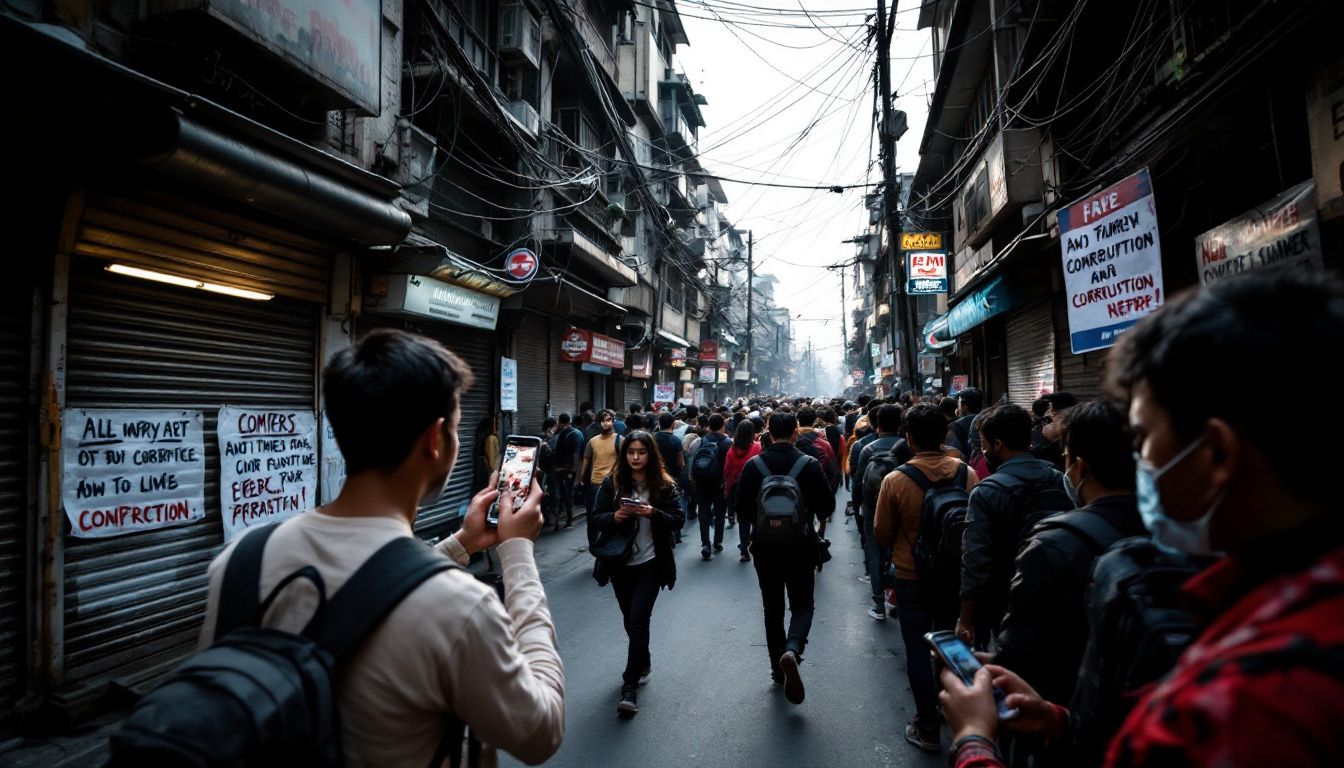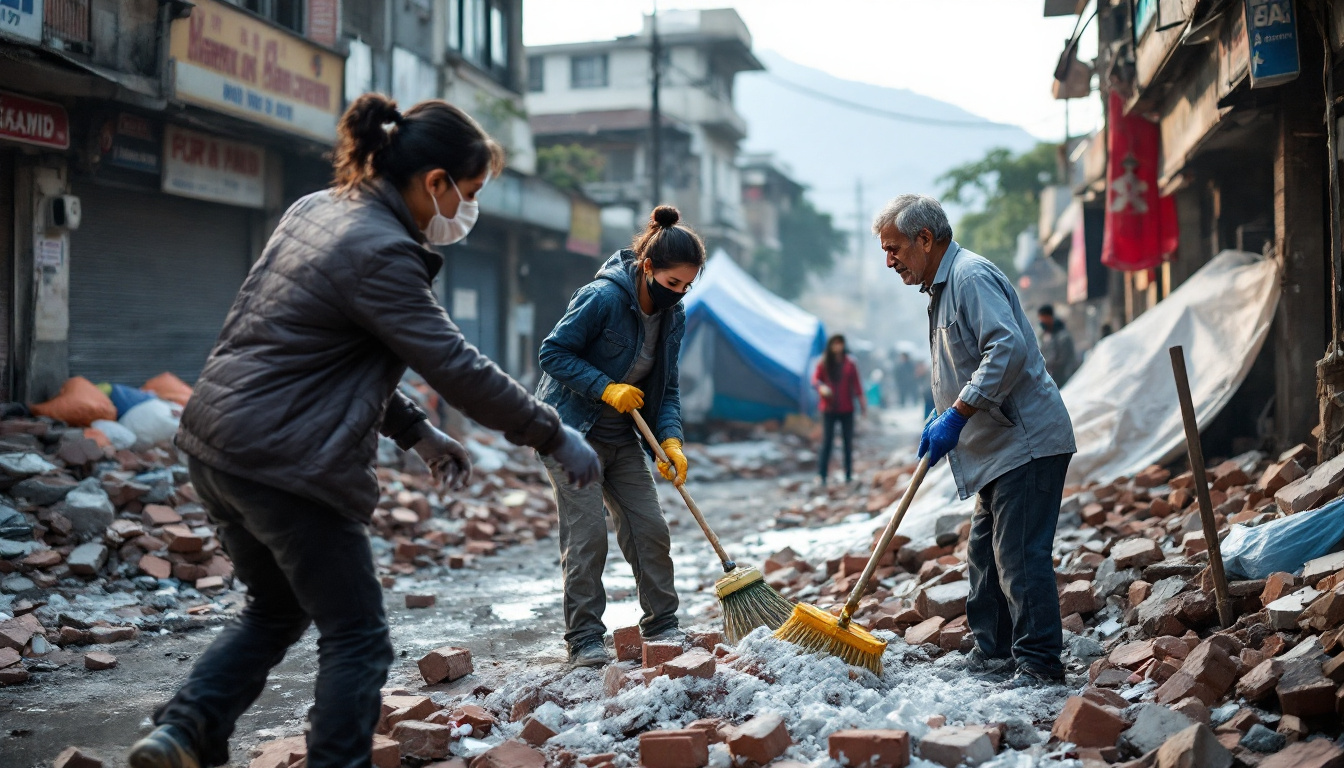Young Nepalis rallied against corruption and won big. Now comes the harder part: turning momentum into policy, rebuilding damaged streets, and keeping the movement accountable.
Across Kathmandu and cities beyond, young Nepalis have led some of the largest anti‑corruption demonstrations in recent memory. Their pressure helped topple national leadership and forced a conversation about integrity, services, and jobs. The streets were loud. The message was clear. But change does not end with a resignation. It begins there.
Why this movement caught fire
Gen Z in Nepal grew up with smartphones, social apps, and a front‑row view of systemic issues. Many are first‑time voters. Many are underemployed or working abroad. They are tired of broken promises, slow services, and the sense that rules apply differently to the powerful. When small cases of graft pile up, frustration turns into a spark. That spark became a wave as student groups, creators, coders, and neighborhood leaders synced messages and logistics online.

The power behind the pressure
This youth‑led effort mixed classic street protest with digital coordination. Organizers mapped safe routes, tracked supplies, and spread verified updates to avoid rumors. Local volunteers offered water, masks, and first aid. Creators posted explainers in simple Nepali and English so more people could understand what was at stake. The movement worked because it felt inclusive, practical, and focused on a single, concrete idea: clean governance.
Winning the moment vs. shaping the future
Removing a leader is a milestone, not a finish line. To convert energy into results, the movement needs a plan that fits a few realities:
- Institutions change slowly, even under pressure.
- Transparency is a process, not a switch.
- Public trust depends on measurable progress people feel in daily life.
Five near‑term steps the movement can push
- Independent anti‑corruption body with teeth. Advocate for an empowered watchdog with open budgets, case trackers, and deadlines. Publish quarterly dashboards that show status, not slogans.
- E‑procurement and open contracts. Put all government bids, awards, and invoices online in a searchable format. Let journalists, students, and civil groups audit in public.
- Asset declarations that actually get verified. Require senior officials to declare assets, then cross‑check with tax and land records. Post summary data for citizens to review.
- Service delivery scorecards. Track wait times for IDs, permits, and utilities. If a ward office improves, celebrate it. If it slips, flag it. Tie manager bonuses to clear metrics.
- Whistleblower protection and safe channels. Offer anonymous reporting, legal aid, and penalties for retaliation. Without protection, cases will stall.

Keep the coalition broad
Winning reforms takes a wide tent. Students bring energy. Creators explain ideas. Lawyers turn demands into language that can pass. Community leaders make sure solutions reach people beyond the capital. The movement should welcome critics who argue in good faith. Divergent views often reveal blind spots before they become problems.
Measure what matters
To avoid drift, set three time frames and track visible results:
- 100 days: Publish a public roadmap. Launch a contract transparency pilot in two ministries. Begin independent audits of procurement hot spots.
- 6 months: Release the first corruption case tracker with outcomes. Cut permit processing times by a set percentage in test districts.
- 12 months: Expand open contracting nationwide. Report on recovered funds and where they were reinvested.
Rebuilding, together
Some streets and shops have been damaged. People need help now. Youth groups can earn trust by leading cleanup, fundraising for repairs, and offering small grants to affected families. Visible care signals that the movement is about communities, not just politics.

Guardrails against burnout and co‑optation
Movements can fade when leaders tire out or when rivals try to hijack momentum. Set rotating roles. Publish minutes of key meetings. Use transparent fundraising with monthly reports. If a leader speaks for the group, pair them with a second voice and term limits. No one should be indispensable.
Media and messaging that builds trust
Keep updates short, factual, and consistent. Share wins and misses. If a claim turns out wrong, correct it fast. Host monthly open forums online where citizens can ask questions and vote on priorities. That creates a feedback loop and keeps focus on outcomes.
Jobs, education, and dignity
Anti‑corruption is step one. To keep support, the movement should connect clean governance to daily life. Focus on:
- Local jobs: Incentives for small businesses that hire youth and report payments publicly.
- Skills: Scholarships for tech and trades tied to community service hours.
- Services: Faster permits for entrepreneurs; more reliable utilities for neighborhoods that meet accountability targets.
What success could look like in a year
Imagine this: contracts are posted before they are signed; citizens can track spending on a phone; permit times drop; a few high‑profile cases end with real penalties; and damaged streets are restored. That is not a miracle. It is a series of small, steady steps with public proof at every stage.
A closing note to Nepal’s young leaders
You turned frustration into action. Now turn action into systems that outlive any one person. Keep receipts. Share data. Protect each other. Invite new voices. Stay humble and stubborn at the same time. The world is watching, but more importantly, your neighbors are. Let them feel the difference.
To contact us click Here .

